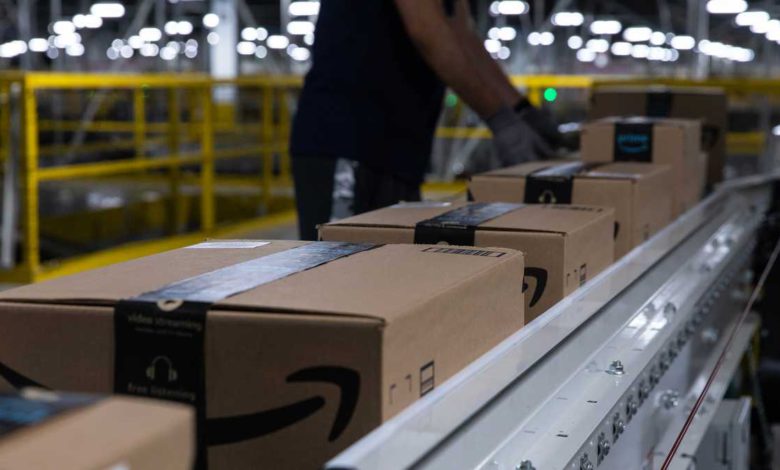

Prime day runs june 21st through june 22nd. You may be tempted to hit that checkout button quickly so you don't miss any deals today. But before you do that, check this out Market Watch points out that just because something is on the lightning deal page doesn't mean it actually is a deal copy and paste the items you are out on camel, camel camel dot com to find out if the price on amazon is really lower than other sites, certain electronics won't be marked down due to the microchip shortage experts recommend you wait until the fourth of july to buy furniture and clothing. The best time to buy clothing overall is when seasons are changing. Prime day doesn't always offer the best deals on TVs. In fact, the best time to buy TVs is often around the holidays. None of this is set in stone. However, so if you do see a good deal outside of these times, go for it. If you end up missing prime day, USa today recommends checking out wal mart's deals for day sale or targets deal days
Shoppers aren't showing any signs of getting tired of Amazon Prime Day, even though some sellers had said they weren't planning on offering deals this year.Amazon said that Prime Day, held this past Monday and Tuesday, was the biggest two-day sales period for third-party sellers in the company's history. Amazon said sales from third-party merchants outpaced its own sales.Amazon also said Prime members purchased more than 250 million items worldwide on Prime Day. Robotic vacuums, coffee makers and Crest Whitestrips were some of the top-selling products."Amazon's Prime Day was aimed to boost new Prime member signups and enhance its relationship with existing members to grow the ecosystem, a mission we believe Amazon accomplished," Joseph Feldman, a retail analyst at Telsey Advisory Group, said in a research note Wednesday.Amazon benefited this year from a favorable economic environment, a wider product assortment — particularly in its own private-label brands— and increased participation from third-party sellers, said Feldman.Walmart, Target, Costco, Best Buy, Macy's and others offered up deals of their own to capitalize on the surge in online traffic driven by Prime Day.Overall, online spending during the two-day event surpassed $11 billion, a 6.1% increase compared to last year's Prime Day held in October, according to Adobe Analytics, which tracks more than 1 trillion visits to U.S. retail sites and over 100 million items across 18 product categories.The "halo effect" of Prime Day gave "both large and small online retailers significant revenue lifts," said Taylor Schreiner, the director of Adobe's digital insights.
Shoppers aren't showing any signs of getting tired of Amazon Prime Day, even though some sellers had said they weren't planning on offering deals this year.
Amazon said that Prime Day, held this past Monday and Tuesday, was the biggest two-day sales period for third-party sellers in the company's history. Amazon said sales from third-party merchants outpaced its own sales.
Amazon also said Prime members purchased more than 250 million items worldwide on Prime Day. Robotic vacuums, coffee makers and Crest Whitestrips were some of the top-selling products.
"Amazon's Prime Day was aimed to boost new Prime member signups and enhance its relationship with existing members to grow the ecosystem, a mission we believe Amazon accomplished," Joseph Feldman, a retail analyst at Telsey Advisory Group, said in a research note Wednesday.
Amazon benefited this year from a favorable economic environment, a wider product assortment — particularly in its own private-label brands— and increased participation from third-party sellers, said Feldman.
Walmart, Target, Costco, Best Buy, Macy's and others offered up deals of their own to capitalize on the surge in online traffic driven by Prime Day.
Overall, online spending during the two-day event surpassed $11 billion, a 6.1% increase compared to last year's Prime Day held in October, according to Adobe Analytics, which tracks more than 1 trillion visits to U.S. retail sites and over 100 million items across 18 product categories.
The "halo effect" of Prime Day gave "both large and small online retailers significant revenue lifts," said Taylor Schreiner, the director of Adobe's digital insights.
Source link







